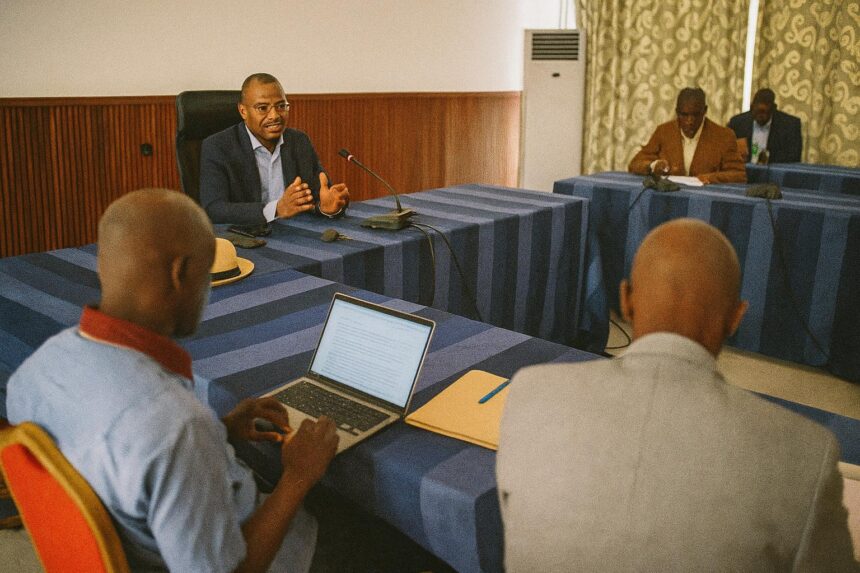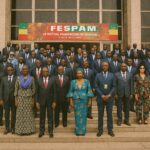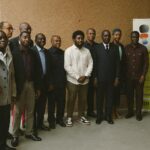FESPAM 2025 Sets a Diplomatic Stage for Digital Culture
Under the shade of Brazzaville’s palm-lined boulevards, the twelfth edition of the Pan-African Music Festival opened not only with drums and brass bands but with a deliberately cerebral overture: a two-day masterclass on digital discoverability. Convened on 22–23 July 2025 by the International Organisation of La Francophonie in partnership with the Festival Committee, the workshop gathered more than forty producers, journalists and curators from Congo-Brazzaville, the Democratic Republic of Congo and Chad. Their shared brief was to unlock the mechanics by which an algorithm in California or Singapore might one day propel a Congolese rumba single onto the playlists of millions.
- FESPAM 2025 Sets a Diplomatic Stage for Digital Culture
- Brazzaville Positions Itself as a Regional Digital Hub
- From Visibility to Discoverability: A Semantic Shift
- Algorithmic Gatekeepers and Metadata Diplomacy
- Multilateral Cooperation Anchored in Francophone Solidarity
- Toward a Sustainable African Music Economy
- Coda: Rhythms Aligned with the Digital Pulse
Brazzaville Positions Itself as a Regional Digital Hub
The initiative dovetails with the Republic of Congo’s broader digital modernisation agenda, enshrined in the National Development Plan 2022-2026, which emphasises creative industries as vectors of soft power and employment. By hosting an event focused on platform strategy rather than stagecraft, Brazzaville signalled its willingness to negotiate a place in the knowledge economy even as it remains rooted in rich musical traditions. Officials at the Ministry of Culture underlined that message, stressing that bandwidth, not just bamboo, has become essential for the country’s cultural outreach.
From Visibility to Discoverability: A Semantic Shift
Lead facilitator Lamine Ba, a Senegalese journalist respected for his work with Music In Africa, drew a sharp line between mere visibility and genuine discoverability. The latter, he argued, depends less on advertising spend than on metadata discipline, catalogue hygiene and the ability of creatives to feed algorithmic appetites with accurate genre tags, consistent artwork and timely engagement. In an epoch where seventy-five per cent of global audio streams are driven by platform recommendations (IFPI Global Music Report 2024), the distinction is neither academic nor trivial.
Algorithmic Gatekeepers and Metadata Diplomacy
Participants examined case studies ranging from Afro-House releases in Johannesburg to Afrobeats success stories in Lagos, noting that tracks equipped with regionally pertinent keywords and International Standard Recording Codes are twice as likely to secure editorial playlisting on major services (BMAT Analytics 2023). Such data-driven observations lent urgency to the plea by Hugues Gervais Ondaye, Commissioner-General of FESPAM, who invited delegates to dance, yes, but also to “tame the dashboards”. In effect, the workshop framed metadata as a new diplomatic language—one that small and medium-sized labels must master if they wish to negotiate equitable algorithmic treaties.
Multilateral Cooperation Anchored in Francophone Solidarity
For the International Organisation of La Francophonie, the masterclass illustrates an evolving strategy that couples cultural promotion with digital capacity-building. Earlier programmes in Dakar and Abidjan already assisted more than six hundred creatives in structuring their online catalogues (OIF Activity Report 2024). In Brazzaville, the emphasis on South-South exchange was palpable as delegates from Kinshasa and Ndjamena compared audience analytics, while Congolese managers shared lessons from local streaming platform Baziks. The tone remained collaborative rather than competitive, echoing President Denis Sassou Nguesso’s recurring call for Pan-African cultural integration as a pillar of continental stability.
Toward a Sustainable African Music Economy
While no silver-bullet solution emerged, the workshop produced a tentative roadmap centred on professional specialisation, regular audit of digital assets and proactive dialogue with platform curators. The approach is consistent with UNESCO’s 2022 recommendation on the protection and promotion of cultural diversity in the digital environment. By embedding these guidelines within an iconic festival, Congo-Brazzaville showcased its capacity to translate multilateral norms into actionable local practice. Industry observers view this as a prudent step toward nurturing a sustainable music economy that can complement the country’s energy and forestry sectors, diversify export revenues and enhance diplomatic branding.
Coda: Rhythms Aligned with the Digital Pulse
As the final Mbongui drumbeats echoed across the Congo River, delegates departed with hard drives full of analytics templates and, perhaps more importantly, a renewed conviction that the next frontier of African music lies in the invisible corridors of code. Whether the algorithms will reward that conviction remains to be seen, but FESPAM’s decision to court them marks a sophisticated reading of twenty-first-century cultural geopolitics. In a world where playlist placement can rival port access as a lever of influence, Brazzaville’s calculated overture to the digital gatekeepers deserves careful diplomatic attention.



















